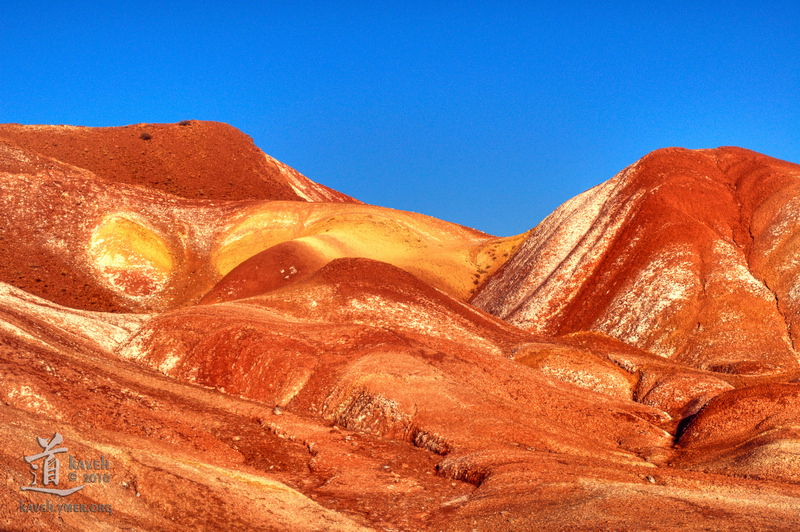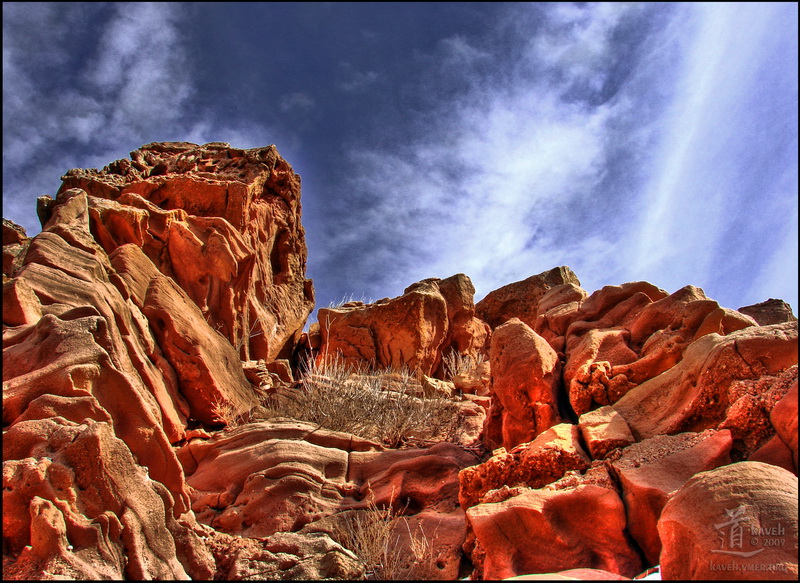
Category Archives: Landscape



Untouched…
These hills display an intense saturated yellowish/reddish colors specially when it rains…

Valley Spirit…
The valley spirit dies not, aye the same;
The female mystery thus do we name.
Its gate, from which at first they issued forth,
Is called the root from which grew heaven and earth.
Long and unbroken does its power remain,
Used gently, and without the touch of pain…

Peace…
When there is no desire,
all things are at peace…
Calmness in victory. Tranquility in defeat. Serenity when confronted by the inevitability of suffering. The sage does not rely on externals to provide him with spiritual strength, for he knows: dependence on external factors – such as status, wealth, popularity, hedonism, success, knowledge and relationships – is the reason why modern man crumples so easily in the face of defeat, failure or loss.
The sage is indifferent to success or failure. He understands that life driven by self-centered ambition will never make sense, no matter how successful you are or with how many positive externals you care to adorn it.
Life itself acquires meaning only when you satisfy your spiritual needs by living in total harmony with the Tao.

Roots…
we are differnet
but we are the same,
we are two…
but we are one,
we are far
but we have the same Roots…
———
I love this Tree… and I feel indebted to it… It has taught many things to me…
It is really fascinating to see that above the ground what seems to the observer as two different tree bodies are one and the same Tree sharing the same roots beneath the ground… Even though they may look like two separate trees they have and depend on the same root system…

Rugged Stone…
Understanding the whole
The Master views the parts with compassion, because he understands the whole. His constant practice is humility. He doesn’t glitter like a jewel but lets himself be shaped by the Tao, as rugged and common as stone.
(Tao Te Ching, Chapter 39)
Wisdom, i.e. true understanding of the whole, is essential to compassion. It is only when you have a picture of the whole that you can understand the individual.
It is clear, isn’t it? It is easy to condemn a person if you do not understand the circumstances which led to the person’s acting in an “unforgivable” way. The moment you get a more comprehensive perspective, and you understand the background and circumstances, you can forgive, or at least act in a constructive way. Even the most despicable criminal becomes human if you can place him or her in a broader framework.
What the passage clearly shows is that humility is a natural product of true understanding. The moment you understand the whole, you realize that you are not better than a person who has fallen by the wayside. Looking down on others is a sign of ignorance. You might even come to the conclusion that you might have acted worse if you had been in the same circumstances as that person.
In some countries, many people are so poor that they are sometimes forced to steal to stay alive. I have often seen people in a country of chronic unemployment who would rather beg than steal. It is easy to look down on the beggar for begging, but wouldn’t you have done worse in the same circumstances? I have seen infinitely poor people smile at me without a sign of hatred, even though I represent everything they will never have. Would we smile at them and be without hatred if we were barefooted and in their ragged clothes?
When I see this nobility in suffering, I feel humbled, and the last thing I would like to do is “glitter like a jewel”, i.e. shine in my affluence. The true sage is truly like a “rugged stone”: his compassion forbids him to be anything else.

